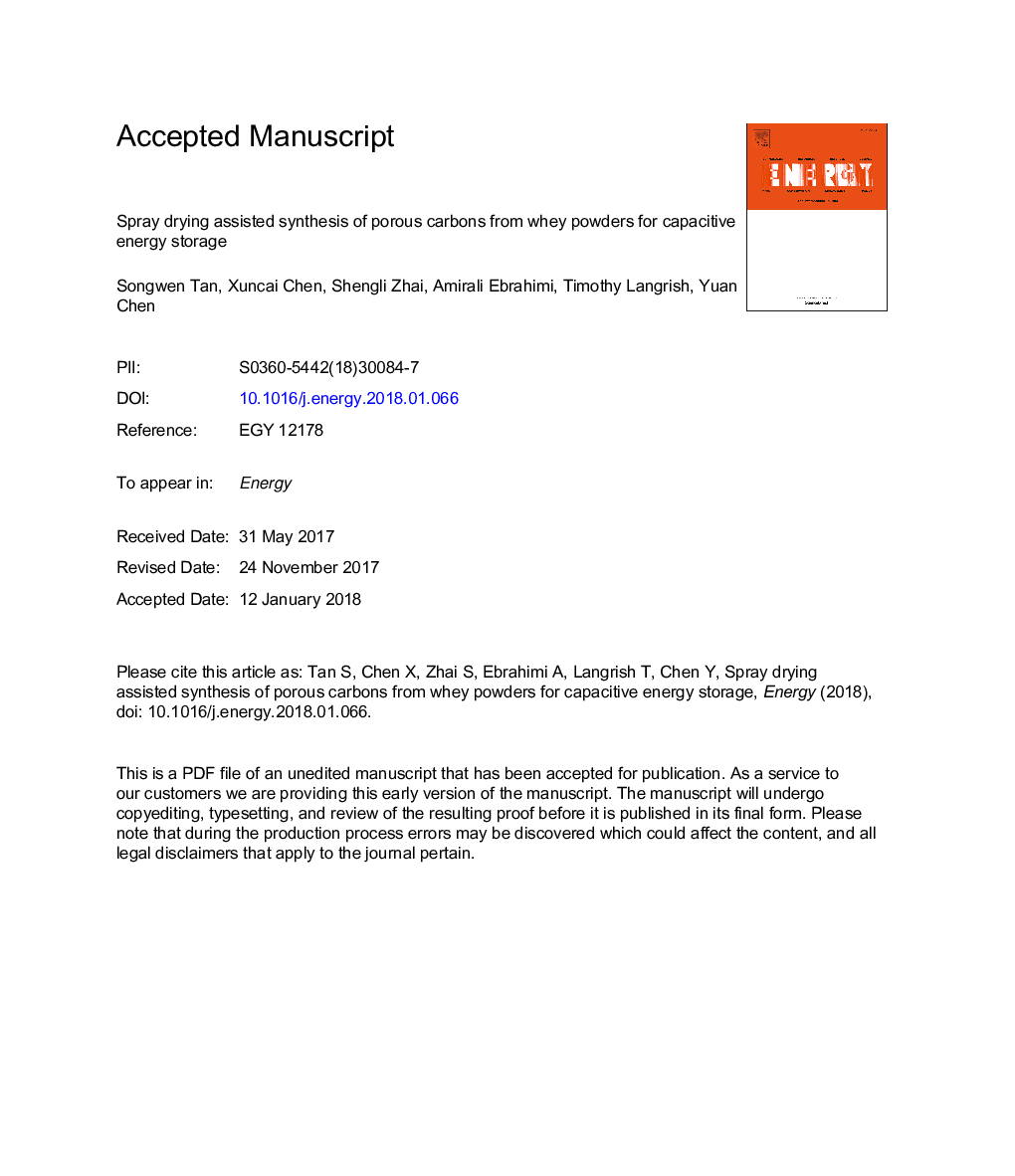| Article ID | Journal | Published Year | Pages | File Type |
|---|---|---|---|---|
| 8072127 | Energy | 2018 | 32 Pages |
Abstract
Supercapacitor is a promising energy storage device, which requires porous high surface carbon materials to achieve efficient capacitive energy storage. Whey powder is a cheap by-product of cheese and casein production process. In this work, spray drying was used to produce uniform composite particles containing whey powers and KOH, in which KOH serves as an activation agent to create uniform pores during carbonization at 800â¯Â°C, and the proteins in the whey powders act as N dopants. At the optimal KOH concentration of 13â¯wt %, the resulting carbon materials contain 3â¯Â±â¯1â¯at.% N, have a large specific surface area of 1320â¯Â±â¯50â¯m2/g with abundant micropores centered at 0.7, 0.8, 1.2 and 1.5â¯nm, and deliver a specific capacitance of 139â¯Â±â¯3â¯Fâ¯gâ1 at 2â¯mVâ¯sâ1. Electrochemical impedance spectroscopy analysis indicates that the carbon material has a good ionic conductivity at the electrode-electrolyte interface and efficient diffusion of electrolyte ions into its bulk. A two-electrode symmetric supercapacitor was assembled, delivering a specific capacitance of 110â¯Fâ¯gâ1 and an energy density of 19.8â¯Wh kgâ1 at a power density of 149â¯Wâ¯kgâ1, which is comparable to other carbon-material based supercapacitors. This study offers a sustainable process to synthesize electrochemical carbon materials using food and agricultural by-products.
Related Topics
Physical Sciences and Engineering
Energy
Energy (General)
Authors
Songwen Tan, Xuncai Chen, Shengli Zhai, Amirali Ebrahimi, Timothy Langrish, Yuan Chen,
